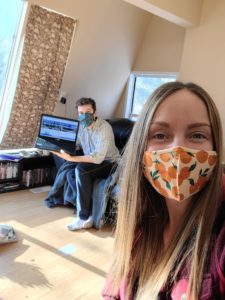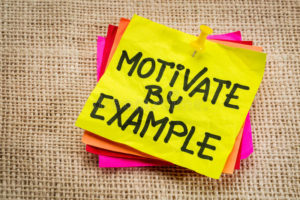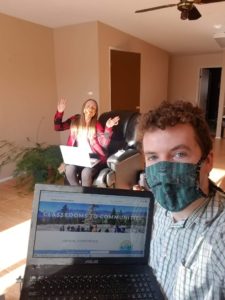
Another powerful day of learning took place today, October 23rd, 2020, at the Classrooms to Communities Conference. Although the entire day was informative and inspiring, two specific sessions really stood out to me. Shirley Giroux spoke to us about Place-Based Mental Health and about the model, TIGERs, created to support teachers, and a panel of high school students spoke to us about what the students what in terms of learning about climate change in the classroom.

TIGERs stands for context responsive Teacher Intervision Groups to enhance Resilience. It is all about having a social group of like-minded people for teachers to engage in relevant discussions about their emotions and to build strength. The difference that Shirley wanted to emphasize for this group is that it is for teachers to talk about emotions, not pedagogy. She felt that there is an abundance of groups, workshops, and conferences to talk about pedagogy, but not emotions. I was surprised by this because I realized it was true. Even I, as a pre-service teacher, have felt the burden of not having many close people in my life such as my partner of family members who know how I feel as the result of my day in a classroom or after learning powerful information that has changed my pedagogy. I see TIGERs as a powerful tool to connect teachers to each other to support each other’s well-being and mental health. TIGERs is connected to place because before forming any groups they ask important questions about that specific group’s connection to place. Who is in this shared space? What is our geographic location? What is our culture in this place? What are our physical capabilities related to our place? What are people’s interests in relation to place? What have people’s experiences here been like so far? What is this place’s history? Does this place pose any constraints on the group? Then, a non-hierarchical group of support educations is formed to promote place-based mental health in an attempt to normalize our emotions as teachers and prevent burn out from the emotional and caring labour we preform every day. I loved how Shirley Giroux connected mental health and well-being back to place because this may be something that people do not realize has a big impact on their lives. When you are connected to and are aware of the place and community around you, it can provide you with strength and the ability to help others as well.

The second session was perhaps my favorite session of the day and was called Climate Change in Public Education. It included a panel of high school students who talked about their fears, hopes, dreams, and goals, in relation to climate change as young people in the political climate we live in today. Ella, Julia, Caity, Aja, and Carter provided extremely valuable and thoughtful insight that I will definitely be incorporating into my classrooms. The most impactful part of the presentation for me was when Frances McCoubrey asked them what they would like to be learning in their own personal high school classrooms in terms of climate change. What should teachers be teacheing? What is relevant to you as a high school student? What is truly helpful to you as a high school student wanting to make a difference in the world. They responded with a long list that both shocked and impressed me. In classrooms they want to learn basic climate change science, learn about the current and future impact of climate change, learn how to take initiative in their school or communities to become advocates, learn how to communicate effectively with peers and community members about the important information that needs to be spread, learn effective debate and conversation skills, and learn how to have a mature and respectful conversation with someone who does not share the same scientific or political view as them. The latter items on this list truly impressed me. Students and young adults are feeling overlooked and patronized and they want to learn how to be HEARD and RESPECTED. They want to know how to make their educated voice a cause for change within their own community and they want to know how to defend their opinions in a strong yet appropriate way. I am absolutely astounded by the words of these five students and I have taken them to heart. A new goal I now have as an educator will not only be to include lots of opportunities to talk about climate change and the ever-changing environment within my classroom, but I will equip students with the skills and knowledge they need to debate, converse, and advocate with the people around them in a professional and confident manner. I was surprised that my biggest take away from this session was not directly about climate change (although I did learn a lot about that too), but it was more so in fact what are students are longing to be taught in schools but are not. As a pre-service teacher I believe I have a great opportunity to fix that within my classroom.
